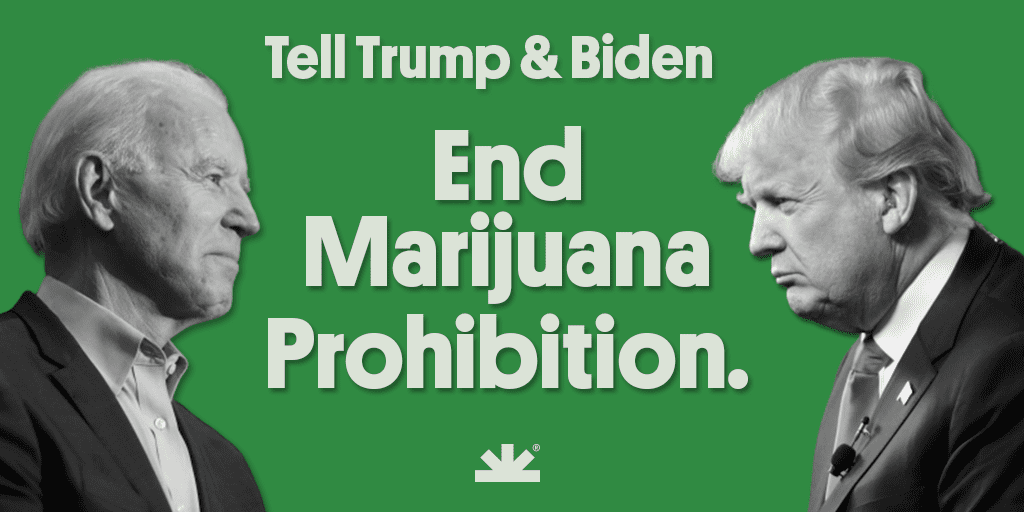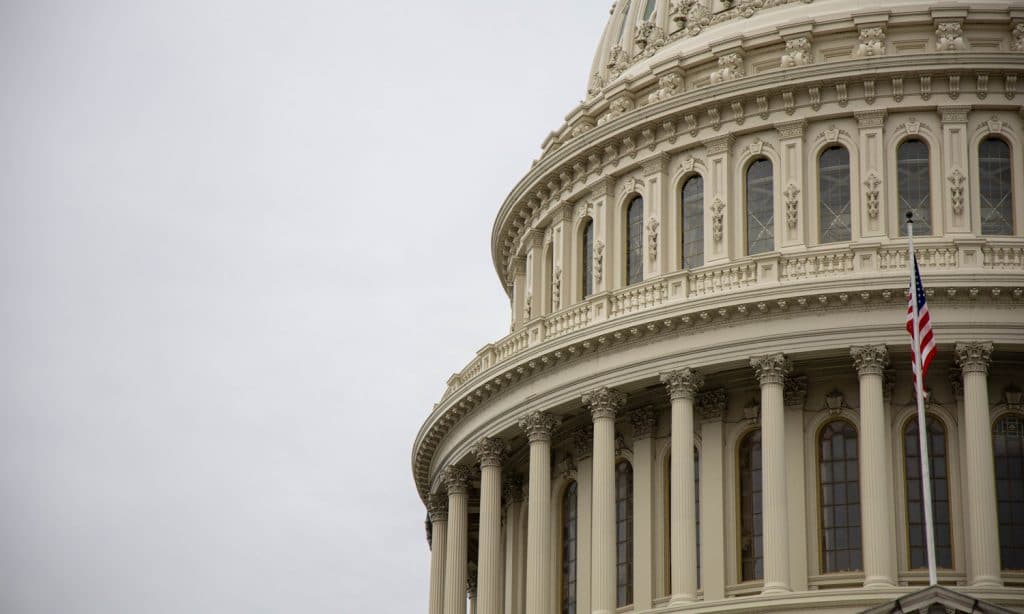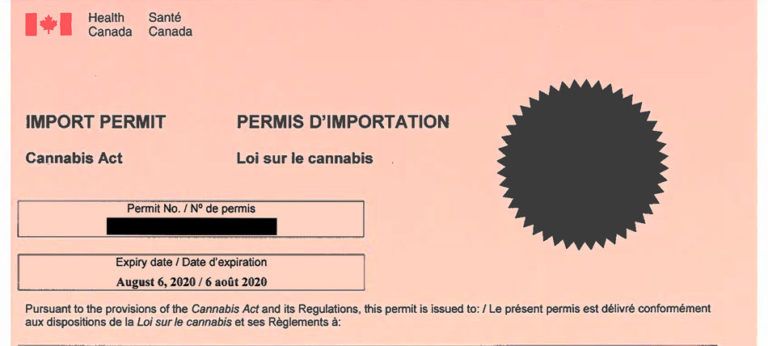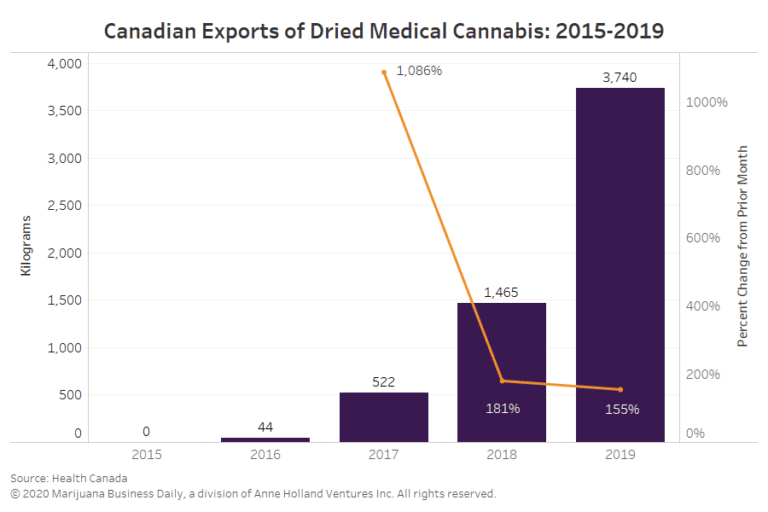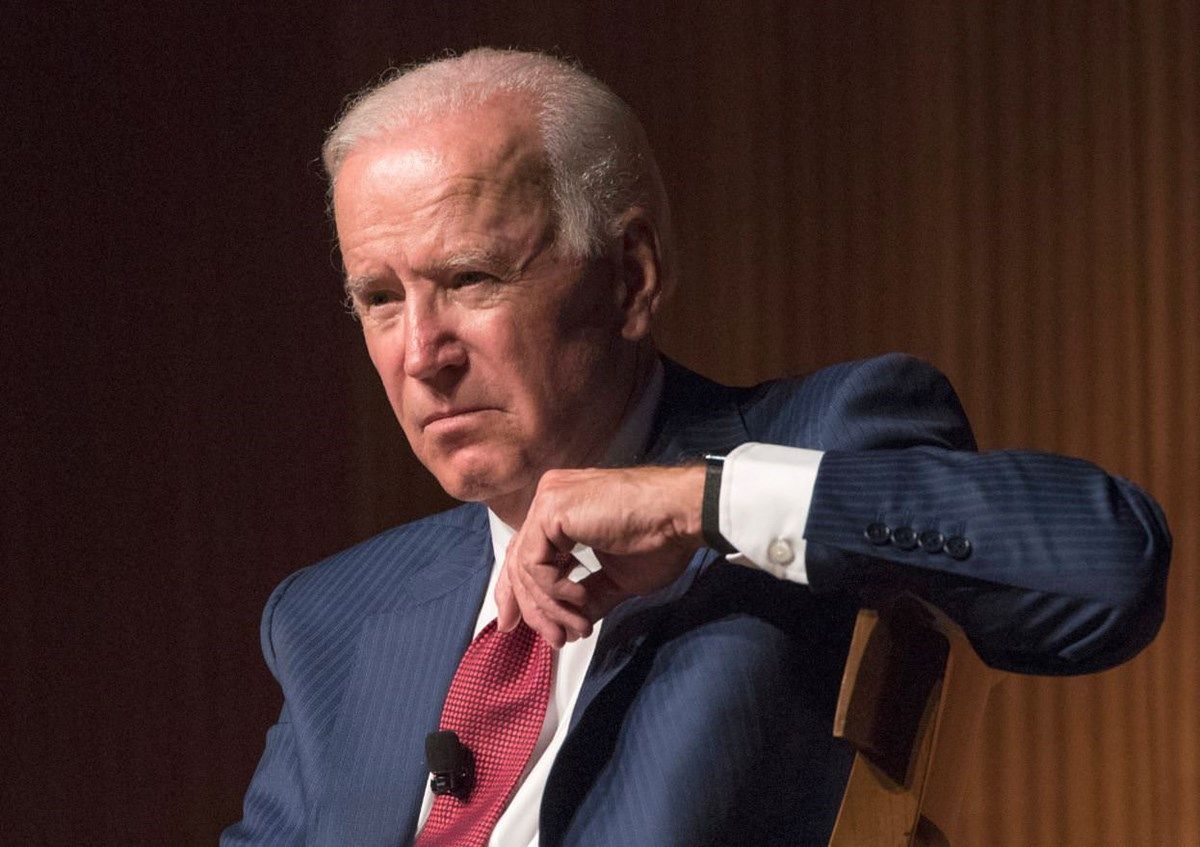Biden Administration Will Pursue Marijuana Decriminalization, VP Pick Harris Says
Published
August 24, 2020
By
Kyle Jaeger
Democratic presidential nominee Joe Biden and his vice presidential running mate Sen. Kamala Harris (D-CA) discussed marijuana decriminalization and other drug policy reforms during their first joint interview as a ticket this weekend.
Harris was
pressed on her prosecutorial record, specifically as it concerns her previous call for more law enforcement officers in the streets. She talked about policing reform but went on to state that, under a Biden administration, there will be a “policy that is going to be about decriminalizing marijuana.”
This is the first time since Biden and Harris were formally nominated last week that they’ve addressed drug policy reform, and it’s notable that the senator opted to call for “decriminalization” rather than legalization. While Harris evolved on the issue to the point where she introduced a bill last year to federally deschedule and legalize marijuana, Biden remains opposed to the broad policy change.
The former vice president has instead
put forward proposals to decriminalize cannabis possession, legalize medical marijuana, expunge prior convictions and let states set their own policies.
During the ABC News interview, Biden also
said “we’re going to make sure that we change the entire system in the way in which we deal with, with criminal justice from punishment to rehabilitate, no one should be going to jail because they have a drug addiction.” He also said that those individuals “should be going into mandatory drug treatment, that’s why I set up drug courts.”
Not what we had hoped but predictable.
JAJAJA they won't even put legalization on their platform. Biden is one of the architects of the 86 Narcotics bill that helped jail thousands of people of color. Harris has done a complete turnaround from her prosecuting days where she was anti pot until last year. . I don't trust any of them. It's going to take the individual states to legalize by voter mandate.
 Joe Biden: The Architect of America’s Disastrous War on Drugs
Joe Biden: The Architect of America’s Disastrous War on Drugs
Joe Biden is kicking off another presidential run. Will his role in the drug war finally catch up with him?
Thursday, April 25, 2019
Image Credit: LBJ Library photo by Jay Godwin
 Brittany Hunter
Politics Joe Biden War on Drugs Mandatory Minimums Drugs Tough on Crime Election 2020 Marijuana marijuana legalization Mass Incarceration
Brittany Hunter
Politics Joe Biden War on Drugs Mandatory Minimums Drugs Tough on Crime Election 2020 Marijuana marijuana legalization Mass Incarceration
As expected, former vice-president Joe Biden is once again running for president, joining what feels like a million other Democrats who declared their candidacies.
While Biden’s more moderate views offer an appealing alternative to the extremism championed by the likes of Senators Bernie Sanders and Elizabeth Warren, his role as the godfather of the War on Drugs warrants attention.
The Architect of the Drug War
Uncle Joe might be everybody’s favorite
political meme, but he is also responsible for many of the policies that led to the breakdown of the American criminal justice system. And after decades of perpetuating the War on Drugs, our country has finally been forced to take a hard look at the policies that led us to where we are today.
Mass incarceration and mandatory minimum sentencing laws have destroyed innocent lives, torn apart families, and cost the American taxpayers
$182 billion annually. The practice of civil asset forfeiture has allowed law enforcement to seize money and property from people who were neither charged with nor convicted of a crime. As a young US senator, Biden played a role in the creation and adoption of each of these policies.
In January, looking to garner support for a future run, Biden spoke on criminal justice reform at an event sponsored by the National Action Network in Washington, DC. Few politicians have done more harm in America’s War on Drugs than the former senator from Delaware.
Addressing a room full of criminal justice advocates, he
said, “I haven’t always been right, but I’ve always tried.” While the first half of his statement is most certainly true, the second half is a harder pill to swallow. And the Americans affected by the destructive policies he penned might not forget Biden’s role as architect of the drug war.
The website
Leafly, which provides education on all things cannabis, went so far as to
claim that “few politicians have done more harm in America’s war on drugs than the former senator from Delaware.” This is quite the accusation to make, but there is overwhelming evidence to back it all up.
Tough on Crime
In the 1980s, Biden fell victim to the “tough on crime” rhetoric that was so popular in its day. As a senator from Delaware, he served as chair of the Senate Judiciary Committee, which oversees the Department of Justice and is responsible for implementing many of the disastrous policies that were passed during this time. In a 1982
New York Times article, Biden coined the term “drug czar” when he called for the federal government to create this new role.
The article
says:
But Senator Joseph R. Biden Jr., … who is a strong advocate of antinarcotics efforts, said today that he thought no program could work without a Cabinet-level "drug czar" in charge to coordinate the work of various agencies.
Just a few years later, Biden got his wish with the creation of the new Office of National Drug Control Policy (ONDCP), whose head is referred to as the “drug czar.” And with this new department came stricter policies for drug offenders and a hefty price tag for the American public. In one of its earlier reports, the ONDCP asked for more taxpayer dollars to enforce its new policies:
Last February, this Administration requested nearly $717 million in new drug budget authority for Fiscal Year 1990. Now, after six months of careful study, we have identified an immediate need for $1.478 billion more. With this report, the Administration is requesting FY 1990 drug budget authority totaling $7.864 billion—the largest single-year dollar increase in history.
In addition to supporting the creation of the ONDCP, Biden also voted for its reauthorization in 1996 and supported its propaganda campaign against the American people. In the bill that received support from the former veep, it reads:
The Director shall ensure that no Federal funds appropriated to the Office of National Drug Control Policy shall be expended for any study or contract relating to the legalization (for a medical use or any other use) of a substance listed in schedule I of section 202 of the Controlled Substances Act (21 U.S.C. 812) and take such actions as necessary to oppose any attempt to legalize the use of [such] a substance (in any form).
In other words, the ONDCP committed itself to keep certain substances illegal
even if new credible information comes to light. In fact, as the last line suggests, the drug czar is even encouraged to take whatever action is necessary to keep this information from the American public. This should terrify anyone concerned with government transparency.
In 1984, Biden cosponsored the
Comprehensive Crime Control Act of 1984. This legislation gave law enforcement the authority to seize money and property from those suspected of drug trafficking—without ever having to charge them with a crime. This resulted in the decades-long practice of civil asset forfeiture that has incentivized law enforcement to
police for profit and steal from the same individuals they have sworn to protect.
Mass Incarceration
In 1994, Biden’s signature piece of legislation, the
Violent Crime Control and Law Enforcement Act, was signed into law by President Clinton. The bill expanded the federal government’s use of the death penalty, banned certain people from owning assault weapons, denied certain higher education rights to inmates, and included the “three-strike” provision for repeat offenders. It also contributed to the dramatic rise in the country’s prison population in the years
that followed.
Clinton later
apologized for the bill, saying, “I signed a bill that made the problem worse and I want to admit it.” Unfortunately, Biden has issued no such apology, but the policy manager for the Drug Policy Alliance, Michael Collins,
commented: "Joe Biden should apologize—just as Bill Clinton did—for his role in mass incarceration, and he should champion systemic change.”
Biden helped change the law so that those caught with a mere 5 grams of crack had the same mandatory minimum as those caught with 500 of cocaine.
Perhaps the most egregious of Biden’s transgressions is the role he played in the creation of the 100-to-1 sentencing disparity between crack and powder cocaine. As the country panicked over the “crack” epidemic, legislators set out to dole out harsher punishments to those found guilty of selling the substance.
The
Anti-Drug Abuse Act, which was written at least partially by Biden, changed the law so that those caught with a mere
five grams of crack cocaine were subject to the same mandatory minimum as those caught with
500 grams of powdered cocaine. The application of this law disproportionately harmed African-American communities and contributed to mass incarceration.
According to a 2006 report from the American Civil Liberties Union,
Cracks in the System: Twenty Years of the Unjust Federal Crack Cocaine Law:
In 1986, before the enactment of federal mandatory minimum sentencing for crack cocaine offenses, the average federal drug sentence for African Americans was 11% higher than for whites. Four years later, the average federal drug sentence for African Americans was 49% higher.
The report continues:
The effects of mandatory minimums not only contribute to these disproportionately high incarceration rates, but also separate fathers from families, separate mothers with sentences for minor possession crimes from their children, create massive disfranchisement of those with felony convictions, and prohibit previously incarcerated people from receiving some social services for the betterment of their families.
In 2003, Biden sponsored the
Reducing Americans' Vulnerability to Ecstasy Act (RAVE Act), which altered existing legislation known as the “crackhouse law.” The RAVE Act made it legal for prosecutors to go after club owners and promoters if drugs are found on their property. The law effectively allowed the club owners to be tried as if they were running a crackhouse (hence the original name). However, while Biden maintained a “tough on crime” attitude with the rest of the country, his own children were being spared any punishments for their drug crimes.
In 1998, Biden’s daughter Ashley
was arrested for cannabis possession in Louisiana. While others arrested for the same offense faced sentences sometimes spanning decades, Ashley Biden was never convicted of any drug-related crime. In 2014, Hunter Biden was
discharged from the Navy after testing positive for cocaine. Like his daughter, no charges were ever filed against Biden’s son.
Has He Really Changed?
While it might be politically wise for Biden to say “he has always tried,” his actions tell a different story. A 2018 Pew Research poll found that 62 percent, or six out of ten people, believe marijuana should be legalized. Yet, while endorsing legalization is a fairly safe policy stance these days, Biden has failed to get behind legalization to any degree.
In 2010, during an interview on
ABC News, he said, “I think legalization is a mistake. I still believe [marijuana] is a gateway drug.” It should be noted that at this point in time, even DARE had stopped listing marijuana as a gateway drug.
By now, it is common knowledge that the War on Drugs has been a complete failure. It’s time for us to hold those responsible for the drug war accountable for their actions. Too much damage has been done to merely look the other way on an issue so important. Luckily for Democrats, they have plenty of other candidates to choose from should Biden’s drug war record finally catch up with him.
Why Joe Biden's Son Wasn't Charged for Cocaine in Pot-Hating Yavapai County
RAY STERN | MAY 24, 2019 | 7:00AM
How did Robert Hunter Biden, son of Democratic presidential candidate Joe Biden, escape a cocaine charge in 2016 in Yavapai County, where even medical marijuana patients get busted for possessing marijuana?
At first glance, it seems Biden might have gotten a political pass after he returned a rental car in Prescott on October 27, 2016. The car contained a pipe with cocaine residue and a small amount of a white, powdery substance.
After all, Prescott, a northern Arizona town of about 42,000 people, is the county seat of Yavapai County, home to County Attorney Sheila Polk, the state's foremost pot prohibitionist.
In office since 2000, Polk led a successful campaign to defeat a legalization measure in 2016. She encouraged police to write up felony charges on people in possession only of cannabidiol (CBD), a hemp compound that doesn't get people high. And her penchant for locking up medical marijuana patients has resulted in a pending state Supreme Court decision over the legality of cannabis resin extracts.
Biden, a 49-year-old lawyer and managing partner of the investment firm Rosemont Seneca Partners, has a little problem with cocaine — that much is publicly known. In 2014, he got booted out of the Navy Reserve, where he'd served as a public affairs officer, after he tested positive for cocaine. So it's not a stretch to imagine that it was indeed the then-vice president's son who left the drugs in the rental car that day in Prescott.
Breitbart.com made the 21-page report on the incident public in an article last week, probably hoping to embarrass the elder Biden with it and hurt his chances as a presidential candidate. The incident doesn't say anything about Joe Biden, really, and the younger Biden never actually faced charges. But it does beg the question of why the county finds it so easy to bust state-authorized medical marijuana patients, but found it so tough to bring a drug charge against a prominent politician's son.
Phoenix New Times received an independent copy of the report from the Prescott City Attorney's Office.
As the report details, police received a call about Biden and the cocaine at about noon on October 28, 2016, from "Emily," a worker at the Hertz rental car office at the Prescott Regional Airport. Emily reported that someone returned a silver Jeep Compass with a bunch of personal items still inside. Those included a wallet with an attorney general's badge, two driver's licenses in the name of Robert Biden with his Washington, D.C., address, a Secret Service business card, and credit cards.
On the passenger seat was a "pipe that [Emily] thought was used to smoke meth," and a small baggie with the white powder. Emily googled Biden's name and learned that Robert was Joe Biden's son.
Prescott police officers searched the car, took photos, and impounded the items. Detectives contacted the FBI, and two FBI agents soon showed up, the report states. Biden was "located by Secret Service" and deemed to be doing "well."
Prescott authorities sent the pipe to the state Department of Public Safety for testing; the baggie with powder apparently wasn't tested. DPS later reported that the pipe contained cocaine residue but no fingerprints. Prescott police forwarded the case to the Yavapai County Attorney's Office for prosecution.
But on November 16, 2016, the prosecutor's office sent a letter to the police agency noting that it was turning down the case. It included a couple of reasons for the decision: "That charge would likely be designated a misdemeanor even if convicted at a jury trial. [Biden] has no prior felonies."
Yet Polk's office has repeatedly threatened marijuana patients and CBD users who have no prior criminal records with felonies (for cannabis) even though they were likely to be designated as misdemeanors, as most low-level drug cases are. To put it another way, the same reasons haven't stopped Polk from charging state-authorized marijuana patients for possessing cannabis resin extracts like vape-pen cartridges.
The county asked the police department to forward the case to the city for potential prosecution, which it did. The city also turned down the case.
Dennis McGrane, Polk's chief deputy, told
New Times that Biden "was not alleged to have possessed a usable quantity of cocaine in this case (Class 4 felony), but rather he was alleged to have had a pipe and a torn baggie with cocaine residue (Class 6 undesignated felony). Barring a criminal history that would justify felony treatment of a particular defendant, it is our standard practice to send these cases to the prosecutor having jurisdiction over misdemeanors, in this case, the city of Prescott.
"Mr. Biden lacked that type of criminal history, so we followed normal office procedure," McGrane continued. "I think we can both agree that no person should be punished more harshly merely because of his or her parent(s)."
McGrane added that extracted cannabis resin under Arizona law, also a class 4 felony, is not eligible for a misdemeanor designation.
That, in theory, could explain why medical marijuana patients with cannabis resin have been getting the shaft in Yavapai County and someone like Biden could escape a criminal charge.
However, the city's turn-down letter — which, for whatever reason, was not in the police report as published by Breitbart — makes the reasoning by prosecutors in Biden's case much clearer than it seems in the Yavapai letter.
Glenn Savona, then the Prescott city prosecutor under Prescott City Attorney Jon Paladini, wrote in a November 23, 2016, letter to Prescott police that the case contained insufficient evidence for prosecution.
"The report does not place the suspect in the vehicle at any time that the alleged paraphernalia was present," Savona wrote in the letter, which was sent to
New Times by Paladini.
"The vehicle was returned by another and, although the suspect's identification was present in the vehicle, there is no evidence to show that the suspect was present when the items were used ... or had any personal connection to the items," Savona's letter continued. "There is little investigation regarding the person returning the vehicle or when the last time the suspect had access to the vehicle. I did confirm that there is no video of the return of the vehicle to the rental business."
Savona was elected Justice of the Peace for Yavapai County in 2016.
Paladini, the Prescott City Attorney since 2013, said he didn't believe Biden received any special privileges in the case. It's possible that someone who returned a rental car with illegal drugs inside might be prosecuted if there were more evidence tying the suspect to the drugs, he said.

In this case, the suspect wasn't found with the drugs, and there were no witnesses or fingerprints. The evidence didn't pass the typical "reasonable likelihood of prosecution" test, Paladini said.
In Yavapai County medical marijuana arrest cases covered by
New Times, the suspect was always found with the suspected cannabis, usually in a traffic stop. The prosecutor had discretion not to prosecute in those cases, too, when the suspects showed their state-issued medical marijuana cards.
But patients like Adam Wanko, who has cancer, and Ashle Stuart, diagnosed with a nervous system disorder, were still charged after police in Prescott found them with THC vape pens. Stuart was convicted after taking a plea deal; Wanko's case is still pending.
It's not Hunter Biden's cocaine story that was likely giving him or his father the most anxiety in recent weeks: Trump has
called for investigations into Hunter Biden's business dealings in Ukraine and China, and Hunter Biden
ended his relationship with his deceased brother's widow.
